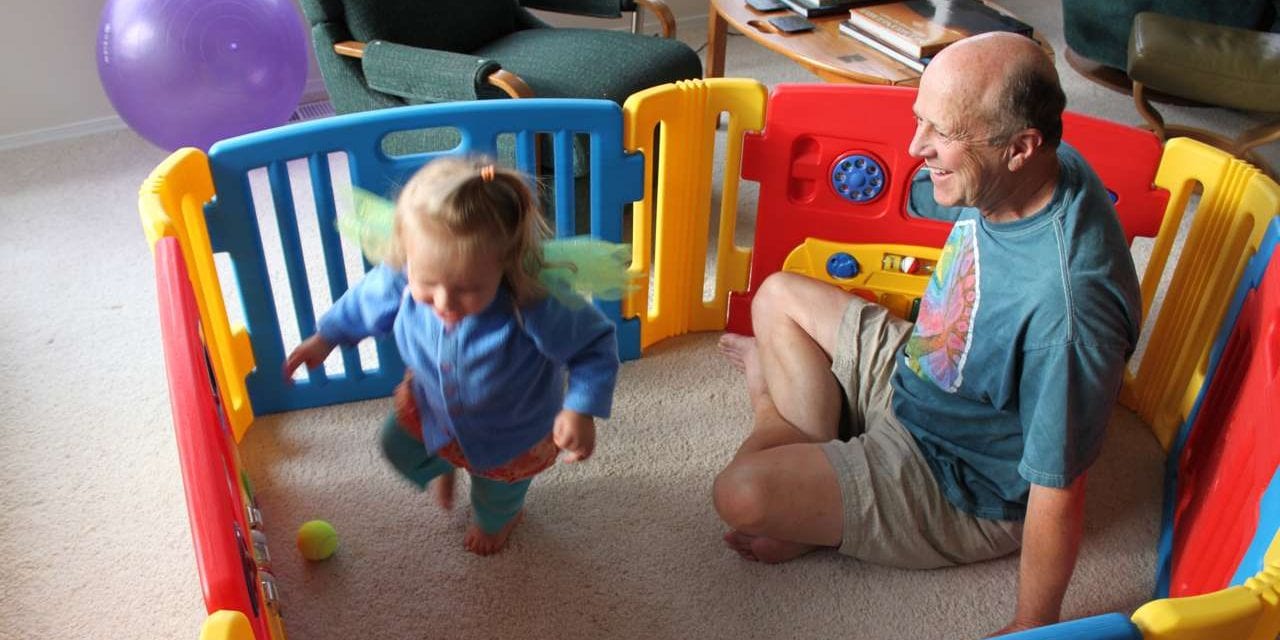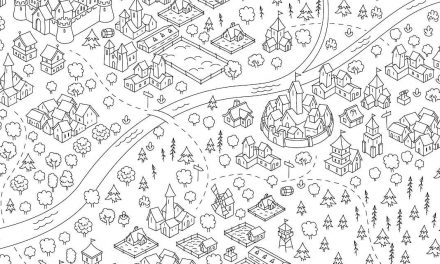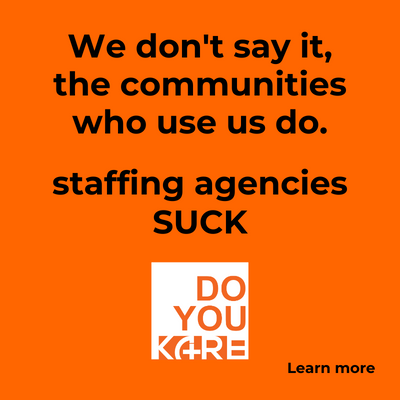I often wonder if we sometimes treat elders as we do our young children – especially those individuals living with Dementia.
I often wonder if we sometimes treat elders as we do our young children — especially those individuals living with dementia. Think of the parallels: we purchase toys that imitate real life, we devise all sorts of safety contraptions or barricades to minimize risk and we feel our decisions are better since we are the responsible ones.
Have We Built Playpens?
On occasion I visit assisted living or nursing facilities, and almost always, I am shown a simulation area (i.e., a pretend grocery store, a pretend laundromat, a pretend café). The tour is usually coupled with a proud statement about how individuals with dementia can come and go freely in the area.
This often reminds me of playpens that inevitably find their way into most households with small children. Some children are surprisingly content for long periods of time in this type of captivity. This wasn’t the case with my kids – but then again, it could be a reflection on my poor parenting skills! Instead, what I recall was my daughters becoming quickly bored and alternatively seeking human interaction.
Tasks vs. Relationships
I think we have all witnessed or heard stories about elders muttering frustration when asked to fold washcloths or sweep the floor for the hundredth time! I personally find household tasks soothing. I like to do laundry, to make beds and organize all the clutter in the house. However, I wouldn’t want to do these things for hours a day, every day. And PLEASE do not try to redirect me with these “tasks” when I’m exhibiting signs of frustration, anger, fear or sadness.
When my daughters were small and not always easy to understand, one thing was clear, they desired human interaction more often than wanting to play with toys. While they did enjoy “pretend” play, they equally enjoyed all the fun discoveries and moments that occurred each and every day. From pulling pots and pans out of the kitchen cabinets, to crawling on the grass and feeling the textures of the weeds, dirt and flowers; we spent far more time simply experiencing the world together than we did playing with toys.
The Power of Being-Known
While working as an administrator, a coworker and I, hosted a weekly dementia group for about a year. We met with the same four to five people each week and never missed a week (even during holidays).
I look back on that time and fondly recall those weekly sessions. They were some of the most fulfilling moments I had that year. What I am most proud of was how powerful our consistent and purposeful interactions were. The group always began with some elders being distracted, anxious, angry or, simply, pacing and not able to sit down right away. However, within minutes we had a fully engaged group of people. And at the end of the hour, they were each calm, peaceful and joyful. Simply amazing stuff was happening each week!
A Different Approach
I am hardly an expert when it comes to dementia. Much of what I learned over the years was taught to me by my dear friend Dr. Allen Power. Al is a world-renowned gerontologist who is changing the way we think about dementia. He recently published his second book – so Google him to learn more! Through Al’s teachings, my co-worker and I were able to bring about a new approach, which led to more meaningful interactions for all of us.
I keep reading about the need for more “memory care” buildings. This saddens me because, although I understand we have a real dilemma facing us relative to the number of older adults living with dementia, I don’t think more memory care buildings is the answer. I have to believe that there’s another way.
My experience as an administrator was to walk away from segregated areas, in which we grouped “like” people together. We found that smaller, diversified environments, with authentic care-partner approaches, were more beneficial to everyone involved.
More Playpens?
I know there are incredible things happening relative to dementia services across the country, so I ask you to please share your stories with me. In what ways are you redefining what it means to live with dementia? What ideas do you have about creating a new future for elders, caregivers and providers? I know we can do it differently if we put our collective thoughts together!
Thanks for listening.
Veronica








